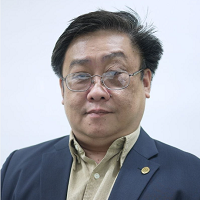 LIU.jpg)
Jiangchuan Liu is a Full Professor in the School of Computing Science, Simon Fraser University, British Columbia, Canada. He is a Fellow of The Canadian Academy of Engineering, an IEEE Fellow, and an NSERC E.W.R. Steacie Memorial Fellow. He is also a Distinguished Guest Professor of Tsinghua Shenzhen International Graduate School. He received the BEng degree (cum laude) from Tsinghua University, Beijing, China, in 1999, and the PhD degree from The Hong Kong University of Science and Technology in 2003, both in computer science. He is a co-recipient of the inaugural Test of Time Paper Award of IEEE INFOCOM (2015), ACM SIGMM TOMCCAP Nicolas D. Georganas Best Paper Award (2013), ACM Multimedia Best Paper Award (2012), and IEEE MASS Best Paper Award (2021). His research interests include multimedia systems and networks, cloud and edge computing, social networking, online gaming, and Internet of things/RFID/backscatter. He has served on the editorial boards of IEEE/ACM Transactions on Networking, IEEE Transactions on Network Sciences and Engineering, IEEE Transactions on Big Data, IEEE Transactions on Multimedia, IEEE Communications Surveys and Tutorials, and IEEE Internet of Things Journal. He is a Steering Committee member of IEEE Transactions on Mobile Computing and Steering Committee Chair of IEEE/ACM IWQoS (2015-2017). He was TPC Co-Chair of IEEE INFOCOM'2021 and IEEE Satellite’2022.
Speech Title: Towards Better Space Networking with LEO Satellite Constellations: Experiences and Solutions
Abstract: The emergence of Low-Earth Orbit satellite networks (LSNs), exemplified by initiatives like Starlink, has ushered in a new era of global connectivity through “Internet from Space.” By coordinating LEO satellites into constellations, LSNs offer unprecedented download capacity and low latency for a wide range of networked applications that would otherwise struggle to operate over conventional satellite networks. However, compared to state-of-the-art terrestrial networks, they still face critical challenges, including constrained uplink capacity, packet loss spikes caused by frequent satellite handovers, and disruptions from solar storms, to name but a few. In this talk, we will share our firsthand experiences using LSNs in remote wilderness regions and explore promising directions for improving their performance. These include adaptive control mechanisms for satellite reallocation, semantic communication powered by large language models (LLMs), enhanced resilience to space radiation, and coordination across satellites in different orbits to enable a unified space network.

Eric Tsui is former Associate Director of the Behaviour and Knowledge Engineering (BAKE) Research Centre and currently a Senior Project Fellow at the Educational Research Centre at The Hong Kong Polytechnic University. He is the coordinator of the Hong Kong MIKE award and a Vice President of the Hong Kong Knowledge Management Society. A recipient of many Knowledge Management and E-Learning international awards including the Knowledge Management Award for Excellence in 2021 and the QS Wharton Reimagine Education Gold Award (Asia) in 2015, Professor Tsui was twice listed as an exemplary/outstanding academic in PolyU Annual Reports in the last 8 years.
Speech Title: Current trends, opportunities and challenges in Educational Technologies
Abstract: This talk will summarise recent trends and driving forces behind the advancement and adoption of educational technologies and new pedagogies in higher education. Such technologies include, but not limited to, Artificial Intelligence, Extended Reality (e.g. Augmented/Virtual Reality and the metaverse), and gamification. The non-technical issues that need to be addressed as a result of adopting and leveraging these technologies are even more worthy of discussion e.g. re-design of assessments, AI competencies for teachers and students, and the ethical issues in the use of AI software. Variations in the emphasis and applications of educational technologies between Western and Asian institutions will also be outlined.